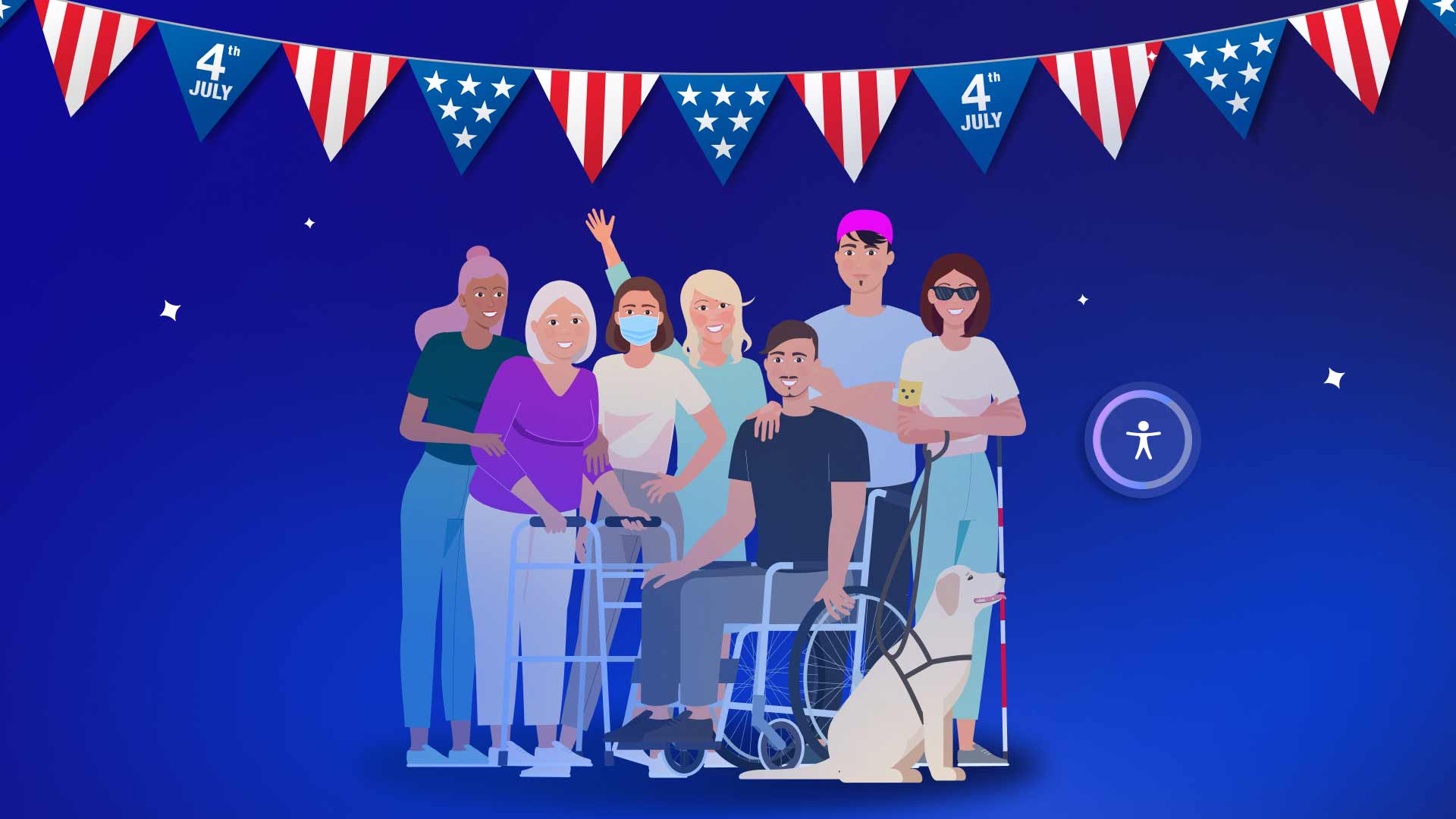For Some, The True Meaning of July 4 Starts with Community Support

Nothing better represents America’s true spirit than the Fourth of July. The United States gaining independence from the British Empire forever changed the world. It opened up new possibilities for democracy everywhere. It gave its citizens inalienable rights and protections to promote an equitable society.
But, like all written doctrines, applying and enforcing these principles of independence (The Bill of Rights) is a colossal and imperfect endeavor. Despite best intentions, it often overlooks those with special needs. Such is the case for many people with intellectual and developmental disabilities (IDD).
Let’s begin by learning how long-term support and services (LTSS) are essential for people with these challenges.
Means to community-based long-term what
The ADA declares the nation’s commitment that people with disabilities enjoy the same freedom and independence as everyone else. Perhaps more than any other group, people with IDD-related conditions rely on this commitment to thrive. Indeed, many things we take for granted, like travel, access to essential services, and community life, require special needs and considerations. In short, IDD necessitates Long-Term Support and Services (LTSS) to enable independent living, including assistance with the following:
- Daily activities
- getting dressed
- taking medication
- preparing meals
- job coaching
- residential support
- and managing money
But, There’s A Problem
The U.S. needs a proactive public-private delivery system. Instead, it cobbles together inadequate funding, federally supplied primarily by the Medicaid program, for which only the most impoverished people can qualify. And this directly impacts a critical need for anyone of any ability: finding an affordable place to live.
Unfortunately, many seeking LTSS aren’t entitled to home and community-based services (HCBS), which the Centers for Medicare and Medicaid Services (CMS) provides. The HCBS Waiver Program enables many people with IDD-related challenges to receive home care instead of facing unwanted placement in a medical facility. The homecare option also helps preserve their independence and keeps them connected to their community, family, and friends at a comparable price to institutional care.
States can but don’t have to finance HCBS programs, and the demand is overwhelmingly higher than the availability:
- There are currently over 500,000 people with disabilities on waiting lists for home and community-based long-term services and support.
- The wait can be 8-10 years in some states.
This dilemma leads to expensive and unnecessary institutional care, forcing family members to quit or take second jobs and often leaving their loved ones unattended.
Where Can You Learn More?
If you or someone in your life faces the challenges of IDD, visit HCBSadvocacy.org. It covers everything concerning the HCBS Settings Rule, which ensures that people with disabilities and older adults receive Medicaid HCBS services. This helps them benefit from access to the broader community, giving them more control of their daily lives and employment opportunities. This website helps stakeholders understand the Rule, stay abreast state-wide, and learn how to engage in advocacy.
The HCBS Advocacy Coalition is a partnership of over 20 national disability and aging organizations that support the full inclusion of people with disabilities and older adults into society. These efforts involve federal and state resources nationwide to advocate for the successful implementation of the HCBS Settings Rule. This critical regulation means that people with disabilities of all ages can have opportunities to live, work and contribute to a community environment.
In the Spirit of Independence, Let’s All Do Our Part
America is based on the idea that every one of its citizens, without exception, deserves fair and equal treatment under the law. Nobody should be marginalized or underserved concerning the basic needs to survive and contribute to society.
People with IDD-related conditions need community support services, particularly related to affordable housing. After all, a roof over one’s head is the first and most crucial requirement for survival.
But our efforts must transcend government-funded initiatives, and support takes many forms. Simply informing a neighbor or friend who needs this help can make a profound difference in their lives. Technology plays a role as well. Beyond fundamental support like housing and home care, people with these special needs need help navigating an increasingly digital world. The support services are out there, and the desire to help comes from within us all. You just need to take that essential first step.
Learn how UserWay does its part to promote inclusivity for all.
UserWay Embodies the True Spirit of Independence
UserWay’s core mission is to provide digital accessibility to everyone worldwide. With an unparalleled framework of AI-powered tools, over one million websites rely on our tech to help people with various disabilities thrive online. It’s just our way of supporting the worldwide community of those with special needs that democracy should never leave behind.
Answers to Common FAQs
Who is the Primary Financial Backer of LTSS?
Medicaid, the primary funder for LTSS, is a joint federal and state program that helps with medical costs for some people who have limited resources. It also covers things not usually covered by Medicare, like personal care services. Learn more about Medicaid.
What is The Primary Goal of Long-Term Care?
Long-term care supports people’s health or personal care for short and long periods.
Who Owns the Most Long-Term Care Facilities?
Organizations own one-third (33.6%) of for-profit SNFs, and individuals own 63.5%.




Share